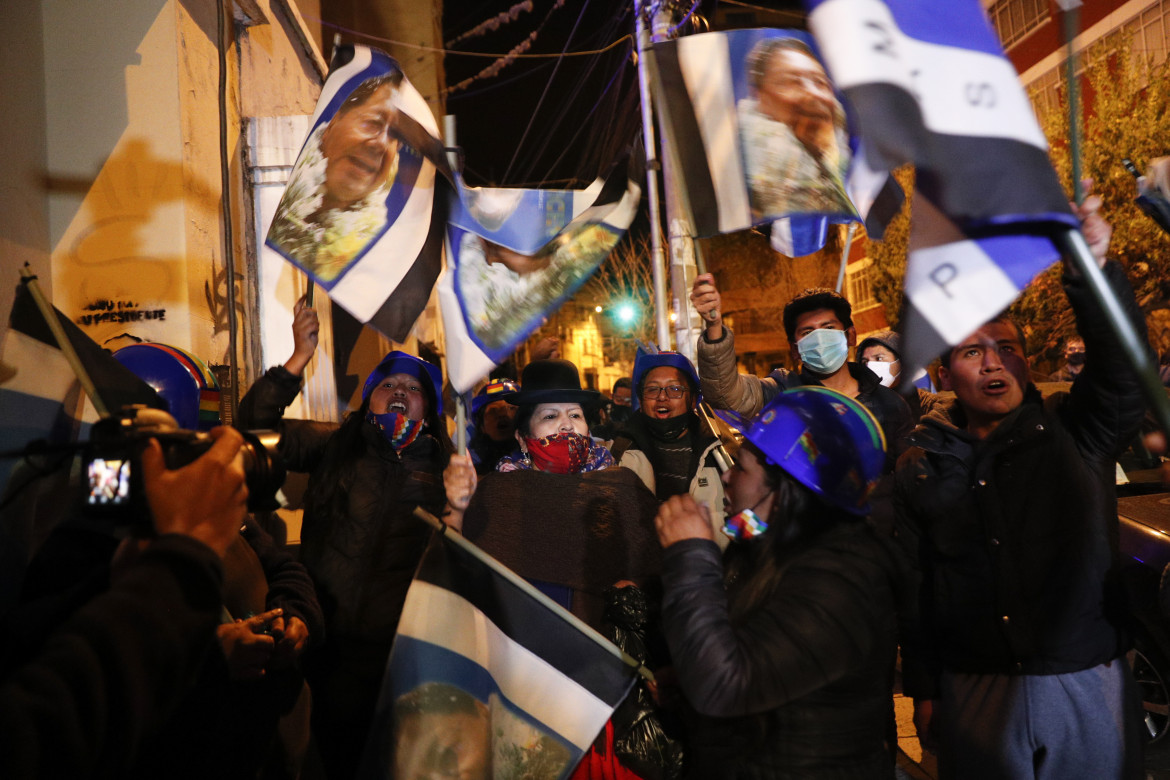Analysis
Bolivia returns to the Movement for Socialism, defying predictions
Accused of having taken an excessively conciliatory attitude towards the coup-installed government since Añez's self-proclaimed ascent to power, the MAS managed to regain power by electoral means.

“They will not return,” the self-proclaimed interim president Jeanine Áñez said, referring to what she called the “authoritarian populism” of the Movement for Socialism (MAS). But they have returned, in the name of “democracy and hope,” in the words of the winner of the presidential election, Luis Arce, Evo Morales’s former Economy Minister.
And they returned triumphantly, with an unexpected result: while all—or almost all—the polls had predicted a victory for the MAS candidate with a percentage between 40 and 45% and an advantage over Carlos Mesa of just under, or just over, the fateful 10 percent (necessary to guarantee victory in the first round), no one would have ever imagined that the Movement for Socialism could obtain an outright absolute majority.
According to the projection made by the Ciesmori Institute, Arce received 52.4% of the votes (winning the districts of La Paz, Cochabamba, Pando, Oruro y Potosí), against 31.5% for Carlos Mesa (winner in Chuquisaca, Tarija and Beni) and 14.1% for Camacho (who won only in Santa Cruz).
At the end of his campaign, Camacho, among the undisputed protagonists of the coup a year ago, said he was convinced that it would be God who would decide who the next president was. Now, he is probably not feeling very satisfied with the divine decision.
For several hours, the coup government managed to keep the results of the exit polls hidden from public view, arousing great anxiety among a population in nervous expectation. “The disappearance of the exit polls is unusual,” the Red de Observadores Electorales account posted on Twitter, hours after the closure of the polls, also complaining about the announcement from the Supreme Electoral Court of an interruption in the vote counting: “A bad strategy in the face of an electorate that is already suspicious.”
But in the end, the coup-installed forces had to surrender. “We do not have the official results yet, but according to the data available to us, Mr. Arce and Mr. Choquehuanca have won the elections. I congratulate the winners and call on them to govern with Bolivia and democracy in mind,” tweeted Jeanine Añez, who became more and more discredited by the multiple accusations of corruption that came up against members of her government, and especially by the state of abandonment in which the population was left in the face of the catastrophic economic impact of the pandemic.
It is not surprising, then, that the strategy of the coup leaders has collapsed so miserably, achieving exactly the opposite result to the one they hoped for. Because the massacres, the judicial persecution, the repression and the criminalization of dissent have ended up strengthening the MAS instead of weakening and dividing it, to the point of overshadowing the many mistakes made by the party before, during and after the coup, with all the controversy that accompanied them.
For example, there were the mistakes around Morales’s escape and the flurry of abdications of responsibility by the leadership of his government, which paved the way for the coup forces. Or those concerning the imposition of Arce’s candidacy by the former president (while the social base of the MAS had preferred David Choquehuanca instead), accused of sacrificing the principle of “commanding by obeying” and replacing it with “obeying those in command.” Then, there was the discontent provoked by the decision of the MAS to put an end to the powerful popular mobilization against the third and unilateral postponement of the elections by the coup-installed government, accepting the date of October 18 set by the latter.
And yet, events have proved them right in the end. Accused of having taken an excessively conciliatory attitude towards the coup-installed government since Añez’s self-proclaimed ascent to power, the MAS managed to regain power by electoral means and without further bloodshed. It remains to be seen what use they will be able to make of it, starting from reestablishing the principles of the Constitution of 2009—starting with buen vivir—that were gradually trampled on during the Morales administration and replaced with the predatory extractive model.
“We will resume the process of change without hate, learning from our mistakes,” assured Arce after his victory.
Originally published at https://ilmanifesto.it/torna-il-movimiento-al-socialismo-e-si-riprende-la-bolivia/ on 2020-10-20
